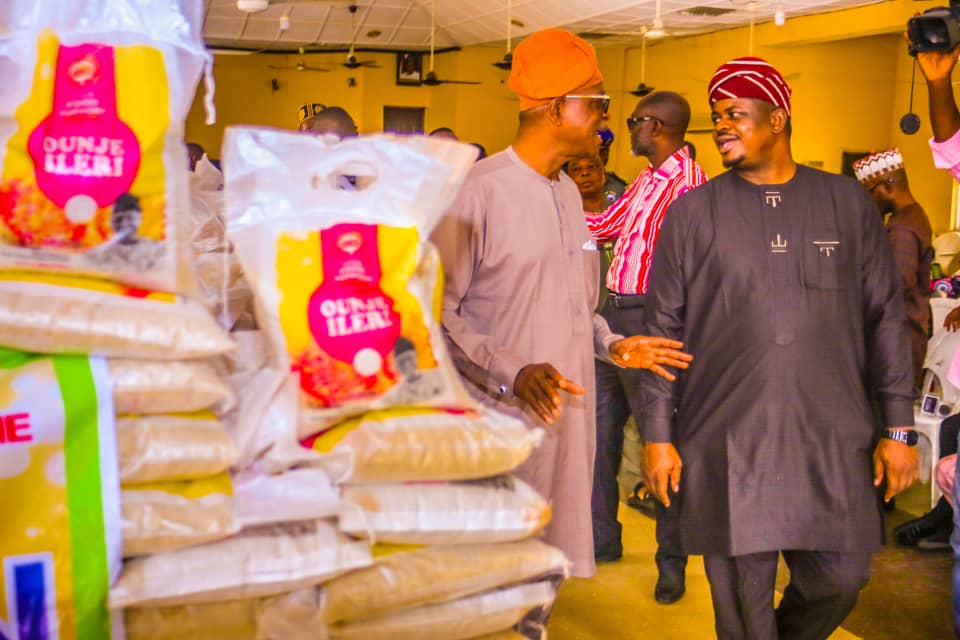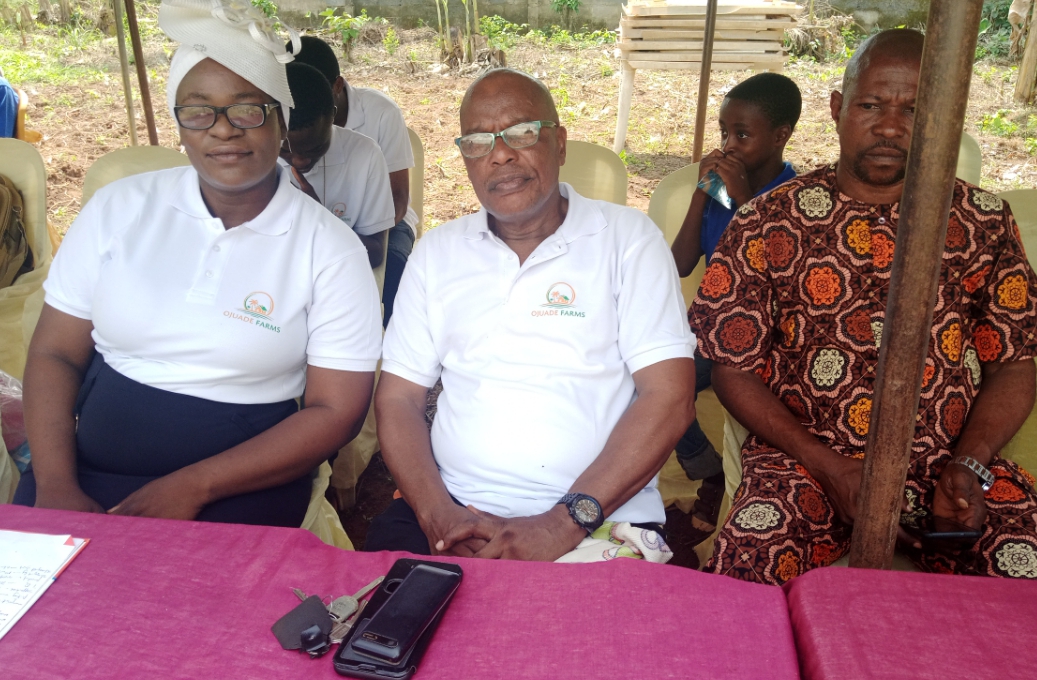Osun Food Support Scheme: A Year Of Oyetola’s Faithfulness
By Ayodeji Olonode
When on April 1, 2021, Governor Adegboyega Oyetola flagged off the Osun Food Support Scheme, promising to cater to the critical needs of 30,000 vulnerable citizens across the state on a monthly basis till the end of his administration in the first instance, it looked like a tall order for a state where the monthly allocation coming to it from the federation account isn’t just little but subject to heavy deductions, thanks to the financial exposures of past years.
He had just flagged off the construction of the iconic Olaiya flyover about a month earlier, and a number of roads across the state for construction or reconstruction. He had approved the immediate implementation of the Federal Government’s approved minimum wage and lifted the embargo on promotion and other welfare packages for workers (that had been in force since 2012) barely five months earlier. How was “Mr talk-and-do” going to pull the stunt of feeding such a large number of vulnerable citizens amid huge financial demands?
Naysayers began to sharpen their tongues ahead of reckless sniggering. Their narrow minds had already forgotten Oyetola’s bold statements in just a little over two years about the possibilities of dividends of democracy penetrating the nooks and crannies of the state even with the lean purse he inherited.
The 332 political wards across the state were already enjoying their functional health facilities, thanks to Oyetola’s revitalisation of Primary Healthcare Centres across the wards. Vulnerable people have access to qualitative healthcare, thanks to Oyetola’s release of take-off grant for Osun Health Insurance Scheme and payment of about N477, 000,000 naira as premium for the enrolment of vulnerable citizens of the state into the Osun Health Insurance Scheme (OHIS). Not even the outbreak of Covid-19 and its effect on the state’s economy could force a comeback of half salaries in Osun. The man sure has a magic wand hidden somewhere.
Oyetola’s commitment to social protection continued to gain traction each passing day with more people-centered interventions, going placidly amid the noise and haste like Max Ehrmann’s desiderata. The Osun Food Support Scheme came as the latest addition to the mix, especially at a time when the nation and even the world was on a recovery track from the devastation of Covid-19. Available post-Covid-19 statistics showed that several jobs were lost and many sources of livelihood significantly threatened due to the outbreak of the pandemic.
So, with Goal 2 of the United Nation’s Sustainable Development Goals in mind (zero hunger, achieve food security, improve nutrition, and promote sustainable agriculture), Oyetola set the ball rolling on April 1. The methodology for spooling the 30,000 beneficiaries for each month showed how much of strategic thinking had been invested in the process long before the blast of the whistle. It also showed the sincerity of the government’s intention to impact rather than chase mindless clout through chaos and stampede. So, beneficiaries were drawn from the nooks and crannies of the state using the World Bank-sponsored Social Register. What this implies is that the government has relied on an existing poverty and vulnerability map, charted by the reputable World Bank, to implement the scheme. This removed possibility of alleged partisanship in implementing the scheme. Good for ‘baba jeje’, knockout for naysayers.















Post Comment